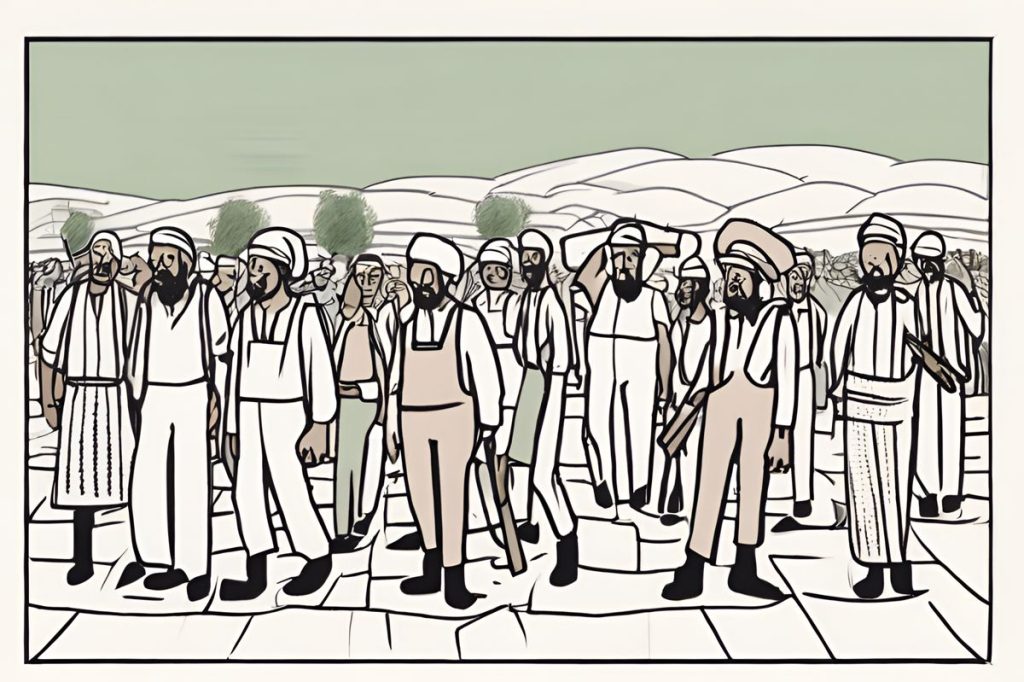Turkish Cypriot farmers are protesting against the government’s decision to import meat from the Netherlands, escalating tensions for over six consecutive working days. The demonstrations reflect widespread dissatisfaction with policies that threaten local agriculture and have garnered significant support from trade unions, posing a significant political challenge to the government in northern Cyprus.
What are Turkish Cypriot farmers protesting about in northern Cyprus?
Turkish Cypriot farmers are protesting against the government’s decision to import meat from the Netherlands, fearing that cheaper imports will undercut their livelihoods. Escalating for over six consecutive working days, the protests reflect a deep dissatisfaction with policies that threaten local agriculture and have garnered broad support from trade unions, indicating a significant political challenge to the government.
Escalating Protests Over Meat Imports
The situation in northern Cyprus remains tense as Turkish Cypriot farmers continue their stand against the ‘government’s’ decision to import meat from the Netherlands. Protests have been ongoing for six consecutive working days, reflecting the deep dissatisfaction among the local agricultural community. This escalation of events showcases the farmers’ resolve to challenge policies they perceive as a threat to their livelihoods.
The deadlock worsened when the two parties failed to agree on a meeting venue for negotiations. The day started with an all-too-familiar scene: protesters dismantling a government office gate, marking the second such incident within a week. The action signifies not only the farmers’ frustration but also their willingness to defy authority to make their voices heard.
Solidarity Across Sectors
The farmers’ movement has garnered extensive support from various trade unions across Turkish Cypriot society, indicating a widespread political challenge to the ‘government’. On Monday, an expanded coalition of unions joined the farmers in striking, which included influential figures like the leader of Cyprus Turkish civil servants’ union, Guven Bengihan, who openly criticized the ‘prime minister’ with a stern warning, reflecting the intensity of the conflict.
The solidarity strike planned by the north’s air traffic control staff union underlines the seriousness of the situation and the broad support for the farmers’ cause. However, a governmental decree quickly intervened to prevent the strike, showcasing the ‘government’s’ stance on containing the protests. The presence of MPs from the opposition party at the protest site further suggests a significant political divide and an attempt to mediate the stalemate.
Disagreement on Negotiation Terms
The heart of the matter lies in the disagreement over where the discussions should be held. ‘Prime Minister’ Unal Ustel’s offer to meet at the ‘parliament’ building was swiftly rejected by Mustafa Naimogullari, chairman of the north’s animal producers’ and breeders’ union, who insisted that any negotiations should occur at the site of the protests. This insistence on the protest site as the negotiation ground underscores a demand for transparency and a refusal to be marginalized in the decision-making process.
Naimogullari’s firm stance against the meat import policy and the threat of continued protests put additional pressure on the ‘government’ to reconsider its position. The ‘government’s’ steadfast policy on meat imports from the Netherlands, intended to reduce consumer prices, has been met with equal resolve from the protesters, who fear being undercut by the cheaper imports.
Rising Tensions and the Risk of Arrests
The tension between the protesters and the ‘government’ is palpable, with the police chief’s warning of arrests if property damage continues. Naimogullari’s audacious response to the police chief, volunteering to be arrested first, exemplifies the determination of the farming community. The farmers’ adamant refusal to be summoned to the ‘government’s’ terms, combined with their skepticism of the ‘government’s’ actions, suggests a challenging path ahead for any reconciliation.
The protests serve as a stark reminder of the power of collective action and the importance of agriculture to the Turkish Cypriot economy. As the farmers stand firm on their demands, the ‘government’ faces a critical test of its ability to manage domestic unrest and maintain economic stability. With neither side showing signs of backing down, the implications for the agricultural sector and the wider political landscape remain uncertain.
What are Turkish Cypriot farmers protesting about in northern Cyprus?
Turkish Cypriot farmers are protesting against the government’s decision to import meat from the Netherlands, fearing that cheaper imports will undercut their livelihoods. Escalating for over six consecutive working days, the protests reflect a deep dissatisfaction with policies that threaten local agriculture and have garnered broad support from trade unions, indicating a significant political challenge to the government.
Why have the protests by Turkish Cypriot farmers escalated?
The protests by Turkish Cypriot farmers have escalated due to the ongoing dissatisfaction with the government’s decision to import meat from the Netherlands. The farmers fear that this policy will negatively impact their livelihoods by undercutting local agricultural products. Additionally, the failure to agree on negotiation terms and the involvement of various trade unions in support of the farmers have further fueled the escalation of the protests.
What support have Turkish Cypriot farmers received in their demonstrations?
Turkish Cypriot farmers have received extensive support from various trade unions across Turkish Cypriot society. The solidarity strike planned by the north’s air traffic control staff union, along with the presence of opposition party MPs at the protest site, indicates a broad political challenge to the ‘government’. Influential figures like the leader of Cyprus Turkish civil servants’ union have openly criticized the ‘prime minister’, underlining the seriousness of the situation.
What is the main point of contention between the Turkish Cypriot farmers and the ‘government’?
The main point of contention between Turkish Cypriot farmers and the ‘government’ lies in the disagreement over where negotiations should take place. While the ‘prime minister’ offered to meet at the ‘parliament’ building, the farmers’ union chairman insisted that negotiations should occur at the protest site. This demand for transparency and refusal to be marginalized in decision-making processes underscores the farmers’ determination to challenge policies they perceive as threatening their livelihoods.

